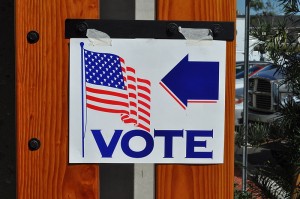The Court of Appeals Speaks in the Recall Case
 Today, the District IV Court of Appeals issued an opinion that reverses a ruling by the Waukesha County Circuit Court denying a motion to intervene in the case of Friends of Scott Walker v. Brennan. The practical impact of today’s Court of Appeals decision is that the committees seeking the recall of Governor Walker and other Republican officeholders will be permitted to intervene in the case of Friends of Scott Walker v. Brennan. As a result, all of the legal rulings made by Judge Davis subsequent to his denial of the motion to intervene must be vacated, so that these legal issues can be reargued with the participation of the recall committees.
Today, the District IV Court of Appeals issued an opinion that reverses a ruling by the Waukesha County Circuit Court denying a motion to intervene in the case of Friends of Scott Walker v. Brennan. The practical impact of today’s Court of Appeals decision is that the committees seeking the recall of Governor Walker and other Republican officeholders will be permitted to intervene in the case of Friends of Scott Walker v. Brennan. As a result, all of the legal rulings made by Judge Davis subsequent to his denial of the motion to intervene must be vacated, so that these legal issues can be reargued with the participation of the recall committees.
This means that Judge Davis’ earlier ruling, interpreting the statutory procedures for recalls under Section 9.10, is now vacated. On January 5, 2012, Judge Davis ordered the Government Accountability Board (GAB) to take affirmative steps to identify and strike any recall signatures that are fictitious, duplicative or unrecognizable. Because of this earlier ruling, the GAB went ahead and adopted new procedures, purchased new signature recognition software, and sought additional time in which to review the recall petitions.

